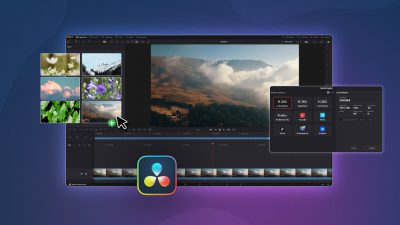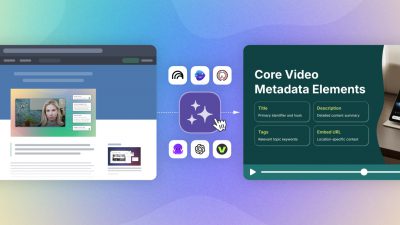The film student. Together, the words paint a vivid picture of a college undergrad. Wildly creative, passionate, a wee bit eccentric, and poor. Very poor. Dedicated to their craft, the film student spends their days in class, their nights immersed in projects, and the infancy of their mornings serving smothered hash browns or filling stained mugs with coffee in a diner.
Of course, this is a horrible stereotype. But, there is something to be learned from the vision of the impoverished, dedicated film student. The lesson being: thrift. Finding inexpensive means of honing one’s filmmaking skills is especially important for amateur online videographers. Here are eight ways to improve your skills on a budget.
1. Continuing Education Classes
Continuing education classes are not just for retirees. Usually offered to the public by local colleges and universities, these courses are a great way to learn about new subject areas, earn certificates, or gain new skills. They’re often taught by faculty members, industry professionals, or graduate students.
Filmmaking courses can range from principles of storytelling to using postproduction software to screenwriting, editing, and theory. Continuing education classes are a great way to interact with skilled experts who can answer questions and demonstrate techniques in film.
Classes are also a great way to meet other videographers in your community. Depending on the school, length of the program, and resources, prices will vary. Some programs are definitely more wallet-friendly than others.
2. Clubs & Meet-Ups
In all likelihood, you’re not the only person in your community who wants to learn and talk about filmmaking techniques. Meetup groups are “neighbors getting together to learn something, do something, share something…”
These loosely structured clubs are conclaves of community enthusiasts, dedicated to the exchange of ideas. Meetups give you the option of choosing your level of involvement: attending meetings, going to workshops, watching screenings, or posting on message boards.
Some meet at local bars and coffee shops (or an occasional bowling alley), to discuss filmmaking and share stories. Group workshops expose members to local filmmakers and videographers, who share their professional wisdom and tricks. Video screenings act as a venue for members to show their videos, and receive project feedback and support.
Finally, whether over beers, coffee, or bowling alley karaoke, Meetups promote the type of environment that leads to collaborations. In turn, this helps foster new projects and insightful conversation. There’s certainly a lot to learn in these informal settings!
3. Online Seminars
With the risk of sounding like a middle-schooler, online seminar websites are AWESOME.
Didn’t get into Tisch? That’s okay. You can still take an online course offered by a faculty member.
Websites like Coursera allow academics from some of the best universities in the world to teach anyone with internet access. Filmmaking courses are fairly easy to find, and are taught by faculty who are truly passionate.
These sites can also be an incredible resource for gathering background information for your film projects. Many courses are free, with options to earn professional certificates for a fee.
4. Film Forums
All you have to do to gain access to online forums is pay your internet bill or visit a coffeeshop. Forums are a great resource for technical troubleshooting. They also allow visitors to gain insight from a large group of amateur and professional videographers.
Insider tips and heated debates are common. Forums can be valuable tools for finding links to videos and websites that give equipment and software tutorials, and even to websites dedicated to DIY filmmaking solutions. These message boards are akin to comparison shopping for information, allowing you to sift through information and advice at your leisure.
5. Online Tutorials
Online tutorials are arguably a study of altruism. A complete stranger, often an industry professional, has devoted their time and resources to showing you how to use your camera or editing software more effectively.
Aside from a bit of notoriety, these gurus are posting how-tos for the sake of helping amateurs create more polished, professional looking videos. These pro bono teachers know the ins and outs of camera tricks and software. They typically have an amazing knack for anticipating even the strangest questions. Many will also diligently respond to comments on their videos, clarifying information and answering additional questions.
6. Social Media
Social media can be a tremendous resource for gathering information, networking with other videographers, and discovering new resources. Be strategic – use the qualities of different social media sites to your advantage.
Joining Facebook groups for filmmakers is a great way to get in on conversations regarding new cameras, accessories, and production tips. Facebook groups are also a great way to share interesting videos and articles, and to stay up-to-date on news and local events for amateur filmmakers.
Use LinkedIn to network with individuals who have similar interests or who are working on similar projects. Pinterest can expose you to additional tutorial and DIY websites, as well as blogs. The site has become a common way for photographers and videographers to share ideas for shoots.
Instagram is perfect for inspiration, and following videographers you’d like to emulate, or interesting hashtags. You’ll get to see how the pros handle video production. Many also engage with genuine commenters on their posts too!
7. Make A Night Of It
Video marathon. It’s that simple. Pop some popcorn, pour on the butter, and get in your footie jam-jams. Hunker down, settle in, and watch videos… Lots of videos.
Whether it’s classic movies in black and white, or modern indie films, there’s a lot to learn from different genres. Cast a wide net to gain as much exposure as possible.
Familiarizing yourself with the works of both famous and lesser known directors and producers is a great way to get a leg up on your education.
Take notes about effects or approaches that you like or dislike. Then, think about how you can apply them to your own videos. Watching movies is also a great way to get some creative inspiration.
8. Play
Kinesthetic learning is one of the most effective means of learning a new idea or skill. Take out your camera and play around. Experiment with lighting, camera angles, and lenses.
Making videos will provide you with practice, make you more comfortable with your camera, and help you learn how to troubleshoot on your own. The element of ‘play’ also lends itself to thinking outside the box, promoting creativity.
Some of the most interesting visual effects are the byproducts of “mistakes” that were made while fooling around with camera equipment. This notion extends to editing software. Learn by doing and having a little fun.
There is a reason the film student stereotype exists. Filmmaking is an expensive passion, from the price tag of cameras to the cost production software. Be resourceful. Be inventive. Your communities, whether online or local, are the key to growing as a videographer.
Share your thoughts and questions about furthering your videography education and skills with us here, on Facebook, and on our Twitter page @sproutvideo!







